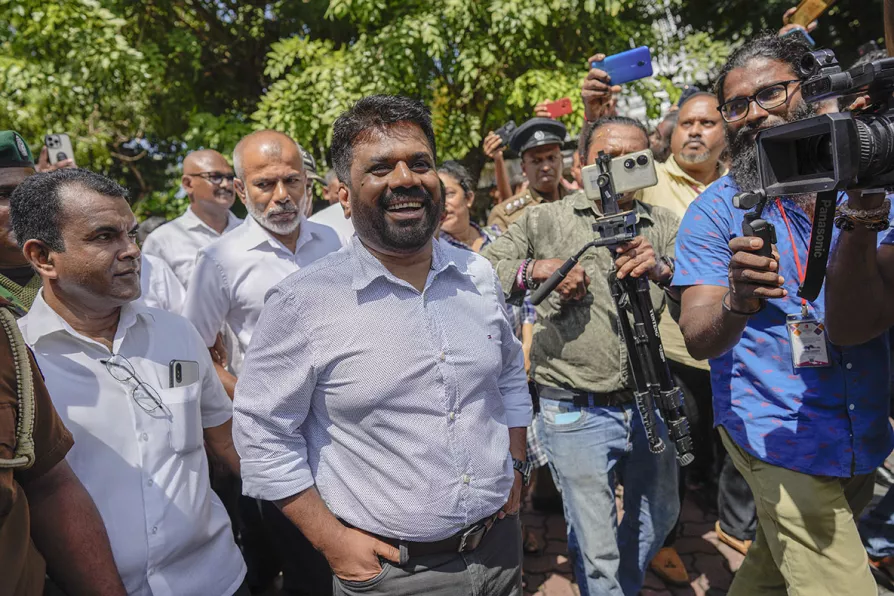Marxist wins Sri Lanka's presidential election

 Leader and the presidential candidate of National People's Power Anura Kumara Dissanayake leaves a polling station after casting his vote in Colombo, Sri Lanka, September 21, 2024
Leader and the presidential candidate of National People's Power Anura Kumara Dissanayake leaves a polling station after casting his vote in Colombo, Sri Lanka, September 21, 2024
MARXIST candidate Anura Kumara Dissanayake has won Sri Lanka’s presidential election, according to data published today by the Election Commission.
He defeated centrist opposition leader Sajith Premadasa and right-wing president Ranil Wickremesinghe, who took power two years ago after the country’s economy hit bottom.
Mr Dissanayake, who campaigned for working-class interests and against the political elite, which was widely blamed for pushing Sri Lanka into the worst economic crisis in its history, received 5,740,179 votes in Saturday’s election, followed by Mr Premadasa with 4,530,902, the official data showed.
Similar stories














